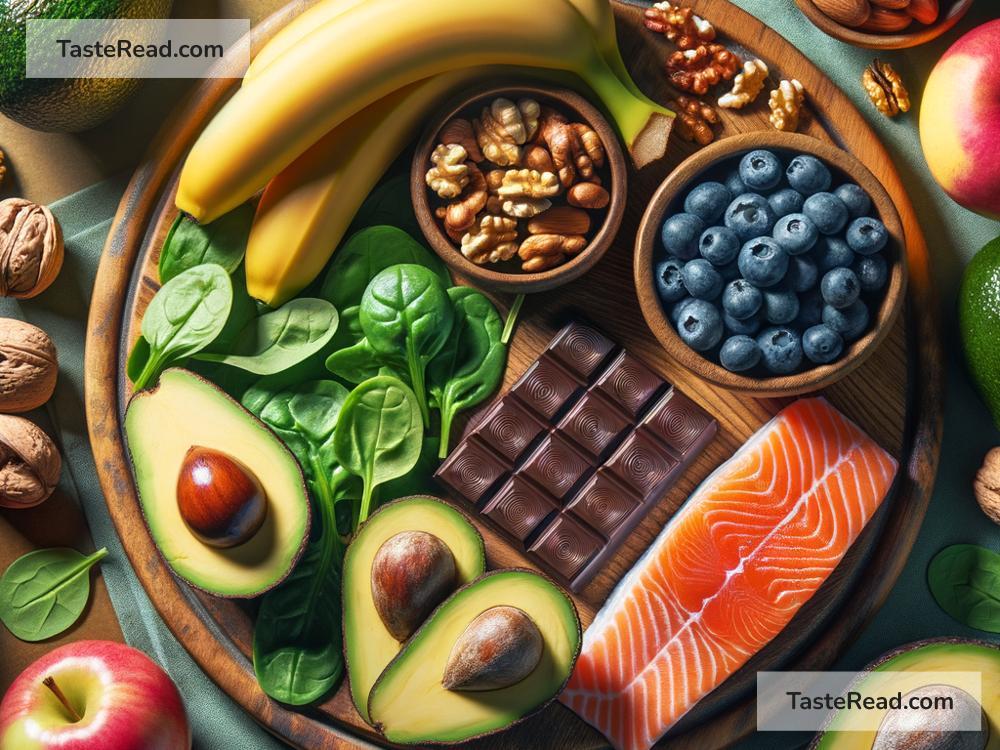Foods for Improving Mood Stability: Eat Your Way to a Happier You
Feeling moody or emotionally all over the place? You’re not alone. Life can be stressful, and our emotions can swing like a pendulum. But did you know that the food you eat can play a big role in how you feel? Scientists and nutrition experts have discovered that certain foods can help improve mood stability and make you feel calmer, happier, and more balanced. Let’s explore some simple, everyday foods that can boost your emotional well-being.
Why Food and Mood Are Connected
Before we dive into specific foods, it’s worth understanding the connection between food and mood. Your brain is like the control center for your feelings, and it’s powered by the nutrients you get from food. If you’re eating a balanced diet, your brain gets the right fuel.
Certain vitamins, minerals, and healthy fats contribute to the production of “feel-good” chemicals like serotonin and dopamine. These chemicals make your emotions steadier and reduce stress, anxiety, and sadness. On the flip side, junk food high in sugar and processed ingredients can lead to blood sugar spikes and crashes, which worsen mood swings and irritability.
Foods to Help Stabilize Your Mood
Here’s the good news: You don’t need rare or expensive foods to improve your mood. Many common and affordable foods can help. Let’s take a look:
1. Fatty Fish
Salmon, mackerel, sardines, and other fatty fish are loaded with omega-3 fatty acids. These healthy fats are essential for brain health. Studies show that omega-3s help reduce symptoms of depression and anxiety. If you don’t like fish, consider taking an omega-3 supplement or adding flaxseeds, chia seeds, or walnuts to your meals.
2. Leafy Greens
Spinach, kale, and other dark leafy greens are packed with magnesium, a mineral that plays a big role in brain function. Magnesium helps regulate stress hormones and supports healthy sleep. Spinach can also improve your energy levels, which often influences your mood. Try making a salad with spinach or sautéing it as a side dish.
3. Whole Grains
Whole grains like oats, quinoa, and brown rice provide your body with slow-releasing carbohydrates. These carbs boost serotonin, the “happy hormone.” Unlike sugary snacks, whole grains keep your blood sugar stable, making you feel calm and focused. Swap white bread for whole-grain options to keep mood swings at bay.
4. Dark Chocolate
Yes, chocolate can be good for your mood! But before you grab a candy bar, go for dark chocolate that contains at least 70% cocoa. Dark chocolate boosts serotonin levels and contains antioxidants that improve brain function. Just enjoy it in moderation—one or two small squares per day is enough.
5. Nuts and Seeds
Almonds, sunflower seeds, pumpkin seeds, and cashews are rich in magnesium, zinc, and healthy fats. These nutrients improve brain health and lower stress levels. Plus, nuts make for a convenient snack that keeps hunger and irritability in check.
6. Fermented Foods
Foods like yogurt, kimchi, sauerkraut, and kombucha contain probiotics that support a healthy gut. Gut health is closely linked to mental health—your gut and brain communicate through what’s called the “gut-brain axis.” A healthy gut can help improve mood stability by reducing inflammation in the brain.
7. Bananas
Bananas are full of vitamin B6, which helps your body produce serotonin. They’re also a great source of natural sugars and fiber, providing you with quick energy without the blood sugar crash. Slice up a banana into your oatmeal or eat it as an on-the-go snack.
8. Berries
Blueberries, strawberries, raspberries, and other berries are rich in antioxidants, which reduce inflammation and oxidative stress in the brain. This can help ease symptoms of anxiety and depression. Try adding berries to smoothies, yogurt, or a bowl of whole-grain cereal.
9. Eggs
Eggs are a powerhouse of nutrients. They contain protein, vitamin D, and choline, which are all great for your mood and brain function. Start your day with a breakfast that includes eggs to set a positive tone for the rest of the day.
10. Avocados
Avocados are full of healthy fats that your brain loves. They also contain folate, which has been shown to improve emotional balance and reduce feelings of sadness. Spread avocado on toast or slice it into salads for a creamy addition to your diet.
Foods to Avoid
While some foods improve your mood, others can harm it. Here are a few to limit or avoid:
– Sugary treats: Candy, soda, and other sugary foods can lead to energy crashes and irritability.
– Processed snacks: Chips, cookies, and fast food often contain unhealthy fats and chemicals that can negatively affect your mood.
– Alcohol: Drinking too much alcohol can disrupt your sleep and make anxiety worse.
– Caffeine overload: Too much coffee can make you jittery and anxious, especially if you’re sensitive to caffeine.
Simple Tips for Mood-Boosting Eating
- Plan balanced meals with lean proteins, healthy fats, whole grains, and colorful fruits and veggies.
- Drink plenty of water to stay hydrated. Dehydration can worsen mood swings.
- Eat snacks that combine protein and carbs, like an apple with almond butter or a handful of nuts.
Final Thoughts
Mood stability doesn’t happen overnight, but choosing the right foods can help your brain and body stay balanced over time. By including mood-boosting ingredients like fatty fish, leafy greens, and whole grains in your diet, you’ll not only feel better emotionally but also improve your overall health. Start small by adding one or two of these foods to your meals and see how they make a difference. Remember, you have the power to eat your way to a happier, more stable you!


